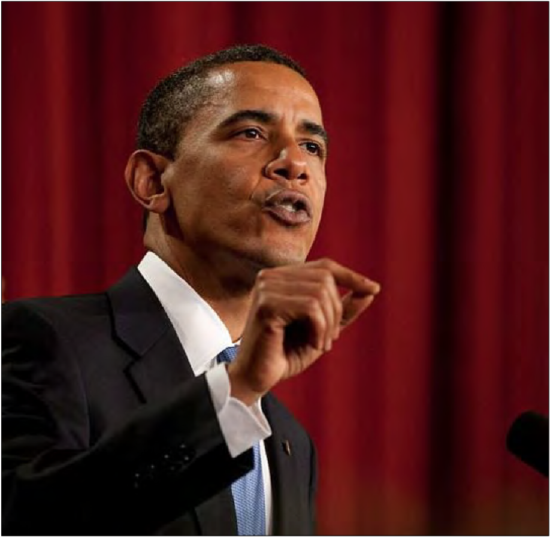14.2: Reasons to Adopt a Global Perspective
- Last updated
-
-
Save as PDF
Martin and Nakayama (2010) argued that key reasons to adopt a global perspective in communication include economic, technological, demographic and peace imperatives. These motives can be extended to the realm of public speaking too.
the economic imperative
Globalization was perhaps one of the most distinctive phenomena of the 20th century, resulting in feverish exchanges of people, ideas, goods and money across national boundaries. Friedman (2005) contended that the world has “become flat” with India, China and other countries becoming an integral part of the global supply chain for services and manufacturing. The top 500 multinational corporations account for nearly 70 percent of worldwide trade (www.gatt.org). These global flows of resources have highlighted the need for organizations, whether profit, non-profit or governmental, to address diverse audiences. Moreover, local neighborhoods from Seattle to Singapore are becoming increasingly diverse. As a result, people who speak on behalf of organizations need to be sensitive to audience diversity while making speeches in public.

snapshot from real life
British Petroleum [BP] appointed a new American CEO, Robert Dudley, who replaced Tony Hayward, a British national who had been in charge of BP in 2010 when the Deepwater Horizon disaster occurred in the Gulf of Mexico. In addition to the obvious issue of being responsible for oneof the world’s worst ecological disasters, one of the key reasons for thechange could be the role that culture played. Hayward was unable to strike the right emotional chord with the American public.
Americans are used to seeing politicians and leaders display emotionin situations that call for it. In such a context, Hayward’s British tendencyto crack a joke to defuse the tension made him look as though he wasnot taking the situation seriously enough. In contrast to Hayward’s notorious comment, “I’d like my life back” the new American CEO Dudley, when asked whether he felt guilty, replied, “I just feel sad. I’vebeen working in the oil and gas business my whole career. It provides aproduct that people need, it’s energy, and all of us can’t believe this has happened.”
If Hayward had taken cultural differences into account, he could have adapted his crisis communication to his audience, and his comments might have been more positively received (Crooks & Edgecliffe- Johnson, 2010).
the technological imperative
Due to the rapid proliferation of information and communication technologies and the advent of modern transportation systems, the world has simultaneously shrunk and expanded. Shrunk because ,in a Twitter moment, one can communicate with millions of people, and expanded because technologies and transportation systems have enabled access to diverse cultures and societies across the world. This situation makes it vital for public speakers to be conscious of the
diversity of audiences who could be dispersed around the world but can be reached instantly over the Internet’s social networks.
the demographic imperative
Even though the history of the human race has been characterized by continual migration and socialization, one of the most extensive waves of migration and cultural mixing occurred during the 20th century. First- generation immigrants often carried with them a strong sense of cultural and ethnic identities that made issues of integration and assimilation hot-button issues in countries from the United States to Germany in Western Europe and to Singapore in Southeast Asia. Any attempt at public speaking that is not sensitive to the plurality of the audience in such an increasingly diverse and multicultural world is almost certainly bound to fail.
snapshot from real life
President Barack Obama’s speech at Cairo University has been highly commended for the respect and sensitivity he accorded to the host audience. Here is an excerpt from his speech that demonstrates not only respect towards the hosts, but also sensitivity towards the host culture by using a common salutation among Muslims, “assalaamualaykum.” During his speech, President Obama (2009) said:
“I am honored to be in the timeless city of Cairo, and to be hosted by two remarkable institutions. For over a thousand years, al-Azhar has stood as a beacon of Islamic learning, and for over a century, Cairo University has been a source of Egypt's advancement. Together, you represent the harmony between tradition and progress. I am grateful for your hospitality, and the hospitality of the people of Egypt. I am also proud to carry with me the goodwill of the American people, and a greeting of peace from Muslim communities in my country: assalaamu alaykum.”
the peace imperative
Worse still, intolerance reflected and magnified in public speeches can breed feelings of hatred and violence. Noreiga and Iribarren’s (2009) study on hate speech and its relation to hate crimes in conservative talk radio in Los Angeles found extensive evidence of hate speech against vulnerable groups such as foreign nationals and racial and ethnic minorities. Further, Yanagizawa-Drott (2012) found that around 10% of genocidal violence in Rwanda could be attributed to propagandist broadcasts on a radio station that had called for the extermination of the Tutsi minority during the Rwandan genocide in which around 800,000 people died over a span of 100 days in 1994.

These compelling reasons for public speakers to adopt a global perspective require an examination of the basics of speaking effectively to a global audience.




